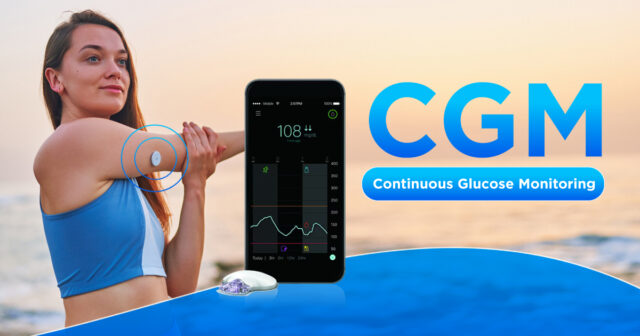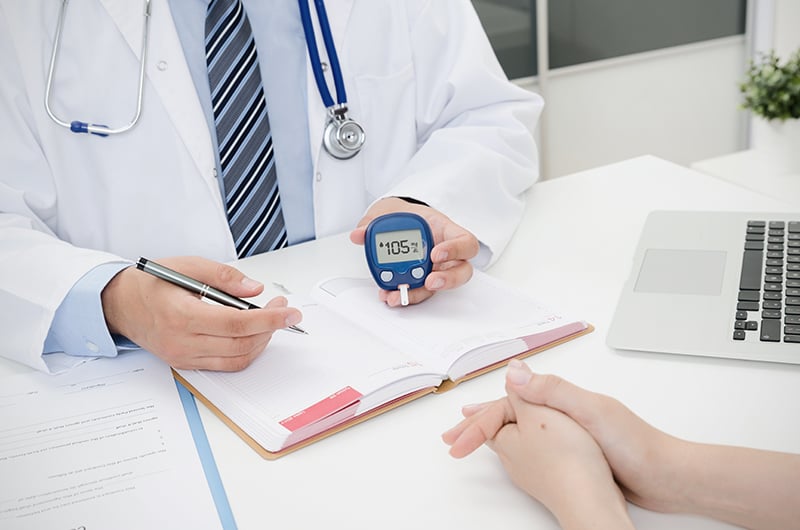Most countries in the world have rising life expectancy and ageing population due to advanced medical technology. Particularly in Thailand, the number of population aged over 60 has been increasing continuously, allowing for the country to become super aged society. To live longer, remaining healthy and active is a crucial key. Nevertheless, the ageing of the population has increased the prevalence of chronic diseases including cardiovascular diseases, neurological diseases, hypertension and diabetes. Coping with these illnesses, lifestyle modifications and appropriate treatments can significantly result in improved treatment outcomes, enabling the older people to achieve a better quality of life while expanding life extension.
Degenerative conditions and diabetes
Degenerative conditions are the result of a continuous process based on degenerative cell changes, affecting tissues and several organs in the body. The degenerative disorders generally are characterized by diseases in which the structure or function of the affected systems change for the worse over time. As people age, degenerative changes can affect different systems in body, including:
- Nervous system e.g. dementia and depression
- Musculoskeletal system e.g. decreased muscle mass and bone density
- Metabolic system e.g. reduced metabolic rates and impaired glucose tolerance
Due to these degenerative changes, elderly people become substantially susceptible to develop a set of chronic diseases including hypertension, heart diseases and diabetes. Medical studies have pointed out that the elderly with diabetes are at greater risk of having strokes, compared to young diabetic patients. In addition, elderly patients with uncontrolled diabetes pose a higher risk of developing other degenerative conditions when comparing to those without diabetes. A group of common degenerative changes consists of hearing impairment or hearing loss, age-related glaucoma, cataract and age-related macular degeneration (AMD) as well as neurological damages involving impaired cognition, perception, understanding and decreased memory.
Treatment of diabetes in the elderly
A wide variety of diabetes therapies has been emerged and available, enabling elderly patients to achieve the effective treatment outcomes. Supported by advanced medical technology deployed in treatment and efficacy monitoring, elderly patients are presumably able to manage their sugar levels efficiently while minimizing the chance of developing diabetes related complications.
To reach the best possible outcomes in the long run, diabetes treatments for individual patients should be initially discussed and planned by multidisciplinary teams, patients, relatives and caregivers since these are an essential part to assist and help diabetic patients to take control over their conditions. The ultimate treatment goal for diabetes is to maintain the blood sugar as normal as possible without serious too high or too low blood sugar levels. In terms of target fasting sugar level, recommended goals are set within a range, depending on underlying conditions of each patient. The target of the hemoglobin A1c (HbA1c) level for patients with diabetes is strictly determined since the higher the HbA1c, the higher risk of having diabetes related complications. Besides a primary goal, treatments are also aimed at preventing or delaying disease progression and the appearance of late disease complications, decreasing mortality and maintaining a good quality of life. Lifestyle changes and diet modifications play a major role in accomplishing these goals. More importantly, as an integral part of diabetes management, neurological assessment for cognitive functions, fall assessment and fall prevention as well as mental support significantly help to enhance treatment outcomes while placing emphasis on psychosocial well-being and mental health aspects.
A healthy lifestyle can aid older patients maintain their functional ability and overall health. Nonetheless, different patients have different personal behaviors and family backgrounds, therefore a customized treatment plan should be individually created based upon patient’s goals and underlying conditions.
The precuations of diabetes care in the elderly
Elderly patients should be initially treated with the principle of start low and go slow. Oral hypoglycemic medications and insulin injection are often used in the treatment of diabetes in the elderly. Special precautions that additional attention must be paid include:
- Prevention of hypoglycemia: A state of having low blood sugar or hypoglycemia is a fall in blood sugar to levels below normal ranges. This may potentially result in a wide variety of symptoms, extending from trouble talking, confusion to loss of consciousness. Feelings of hunger, sweating, shakiness or weakness may also be present. To prevent further damages to the brain and heart that can suddenly develop, dropped sugar levels must be corrected immediately by taking carbohydrate or high-sugar foods. Thereafter, immediate medical assistance must be additionally sought for further treatment, if required.
- Choosing oral hypoglycemic drugs with less side effects: In elderly patients, an initial treatment with oral anti-diabetic medications usually begins with medicines that produce fewer side effects, particularly low blood sugar. If medications do not show a significant control over high blood sugar levels, insulin injection might be subsequently prescribed.
- Keeping other underlying diseases under control: Besides regulating blood sugar levels to fall within desired ranges, other underlying conditions must be managed appropriately e.g. hypertension, high blood lipid (dyslipidemia) and tooth decay. Since medical evidence has suggested that elderly patients with diabetes are at increased risk for death from infections such as pneumonia, recommendations on vaccination must be strictly followed, such as seasonal flu vaccine and pneumococcal vaccine.
The unprecedented aging of the population is a major contributor to the diabetes epidemic worldwide and older adults represent one of the fastest growing segments. Diabetes therapies among elderly and young patients are different, hinging on their personal conditions and individual responses. To achieve a comprehensive diabetes care, an integral part comprises of patients, relatives, caregivers and multidisciplinary teams highly specialized in diabetes and related conditions. Apart from appropriate treatments, lifestyle modifications is utterly important to sustain the effectiveness of treatment outcomes. These include avoiding high-sugar foods, eating fiber-enriched diets with low fat, regular exercise, sufficient rest, smoke cessation and refraining from alcohol. It is essential to follow all instructions directed by the specialists strictly including scheduling regular visits with the endocrinologists. In case that undesired effect arises, medical assistance can be promptly provided, leading to improved quality of life and extended life expectancy.










